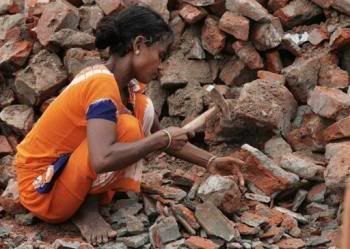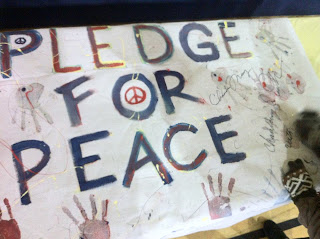 |
| Photo of Sonam Chodon, who tragically lost her life in the Oikos University shooting in Oakland |
This week on Monday, April 2nd, seven innocent lives were abruptly
ended in a horrific shooting at Oikos University in Oakland, CA.
Monday’s tragic incident was particularly shocking and unprecedented for
the Tibetan and Sikkimese communities here and everywhere as we mourn
the untimely deaths of Sonam Chodon (Tibetan) and Tshering Rinzing
Bhutia (Sikkimese). Sadly, these were also the two victims whose
nationalities were dissolved into "Nepal" and/or "India" in earlier
media reports, reflecting how without a sovereign statehood we are
vulnerable to ethnic invisibility even in death.
The other students who were killed were of Nigerian (Doris Chibuko),
Filipino (Kathleen Ping), Guyanan (Judith Seymour) and Korean (Lydia Sim
and Grace Kim) ethnicity. The shooter, One Goh, was Korean and is in
police custody. My heart and prayers go out to all the families and
friends of those impacted by this horrific act and to their communities.
Many of us have heard and seen reports of random shootings in the US
or elsewhere. Be it two senior high school students’ mass shooting in
Columbine, Colorado; a 17-year old boy’s consecutive shooting sprees at
his secondary school and a car dealership in Southern Germany; a
deranged shopper’s random shooting in a Dutch mall; a disturbed American
GI’s shooting rampage in an Afghan village; or a 43-year old Korean
immigrant’s madness at Oikos University Oakland this week – horrific
shootings resulting in multiple innocent deaths are always a shock to
our system and psyche. No matter what the circumstances, these acts are
inconceivable each time they happen. It reminds us of how we, humans,
can crack somewhere so deep inside that it can lead to incredible
suffering for oneself and other innocent beings.
That said, Monday's incident represents a tragedy for many of us,
particularly those of us living in the United States and its immigrant
communities.
Tragic because it is the worst case of senseless shooting in the Bay
Area involving mostly Asians. Tragic because it exemplifies how a system
failed to support a new immigrant to this country troubled by his own
loss of a mother and a brother last year under different circumstances.
Tragic because it is yet another example of how this country's laws
around gun control do more harm than good for society. Contrary to the
proponents of laws against tighter gun-control laws, America's "right to
bare arms" ended seven promising lives and set in motion a likely
lifetime of incarceration for one on Monday. Tragic because it
shattered dreams, broke hearts and forever separated families from their
loved ones.
We are all impacted by a deeply sad and tragic set of circumstances
that led to the loss of these 7 precious human beings, including our
very sister, Sonam Chodon, and our cultural brother, Tshering Bhutia
from Sikkim. As I learned from surviving siblings and close friends,
they were two lovely aspiring human beings with dreams to do good in
this sometimes crazy world we live in. A soft-spoken nurturing Sonam
Chodon was deeply committed to serving her community, which she did for
five years on the staff of Department of Education within the Tibetan
exile government in Dharamsala, India. She was on her way to completing
her nursing courses at Oikas University and had been in the US for just
under two years. She was poised to do more good in the world with her
nursing degree at age 33.
Incidentally, both Sonam Chodon and Tshering Bhutia had no living
parents so their surviving siblings are bearing yet another personal
loss. Arrangements are being made to fly Tshering Bhutia's body back to
Sikkim for ceremonies in his homeland. He was a cheerful and hardworking
man who would've turned 39 this month! He was on his way to apply for
US citizenship this year.
On Tuesday April 3rd, the Tibetan Association of Northern California
(TANC), a nonprofit that oversees the wellbeing of the local Tibetan
community, hosted a beautiful prayer ceremony for all the victims and
their families at the Tibetan community center, De-Shi Phuntsogling, in
Richmond. Tibetans and Western friends chanted Buddhist prayers led by
maroon-robed monks from the Gyuto Vajrayana Center in San Jose and
Nechung Buddhist Center in El Cerrito.
I have never seen the Tibetan community center so full with people as
that night, with an estimated 150 in the audience. The show of
community support for the victims and their families was moving and
quite a number of non-Tibetans were there as well. Six of my own
colleagues from Oakland-based nonprofit, Community Health for Asian
Americans (CHAA), were present also. CHAA’s Executive Director,
Beatrice Lee, read a heartfelt condolence letter on behalf of her
organization board and staff. TANC President Tenzin Tsedup gave an
emotional memorial to his former classmate, Sonam Chodon, and
acknowledged Tshering Bhutia, with full commitment from TANC's side to
do whatever is necessary to show support to his bereaved family in
Sikkim as well as that of Sonam Chodon's. At the end of the
ceremony, people went up to Sonam Chodon's brother to express
condolences (Tshering Bhutia had no relatives or family in the Bay
Area). It was a deeply emotional time for everyone regardless of how
personally we knew Sonam Chodon or not during her life.
There was a momentary merging of Eastern and Western cultures in the
openly public display of tears, sorrow and physical embraces of
solidarity against a more stoic cultural backdrop. I watched how
gracefully Sonam Chodon's brother acknowledged quietly each person's
condolence and accepted the embraces despite the personal grief. He
later shared with me that that night's show of community's solidarity
was something he will cherish and felt deeply grateful for.
Four Tibetans were involved in this incident, three were women. Sonam
Chodon’s classmate and friend narrowly escaped death by hiding under a
table in the class, another Tibetan woman in a separate room actually
saved herself and her colleagues from potential fatality by locking
their class door and turning off the light just before the shooter got
there. Tragically, Sonam Chodon was killed.
In many ways both the Tibetan and Sikkimese communities are blessed
to have Buddhist spiritual principles to draw strength from and keep
spirits hopeful. Customary to Buddhist tradition, community members at
the dedication that night offered donations via TANC for the families of
Sonam and Tshering as contributions toward butter lamp offerings and
prayer ceremonies throughout the first 49 days following their demise.
People poured hearts and purses in a generous show of support.
My heartfelt prayers to ALL the families, friends and communities
impacted by this tragedy including that of the perpetrator. May those
deceased rest in peace and may their surviving loved ones move through
their painful loss with compassion and forgiveness.
We are all the same in that one day we all have to bid farewell
to this life! When and how we get to do that is unpredictable and beyond
our control. So treat each day like a gift from the universe to do
good in this world!
Om Mani Padme Hum....,
Dechen
Berkeley, CA
FYI: This piece was shared and approved by Sonam Chodon's brother
and Tshering Bhutia's best friend and nephew before going public. For
tax-deductible donations toward memorial costs of the Tibetan and
Sikkimese victims, please send checks to Tibetan Association of Northern
California (TANC) with "memorial" in the memo and mail to TANC, 5200
Huntington Avenue, Suite 200, Richmond, CA 94804.
photo credit: Thepo Tulku












































